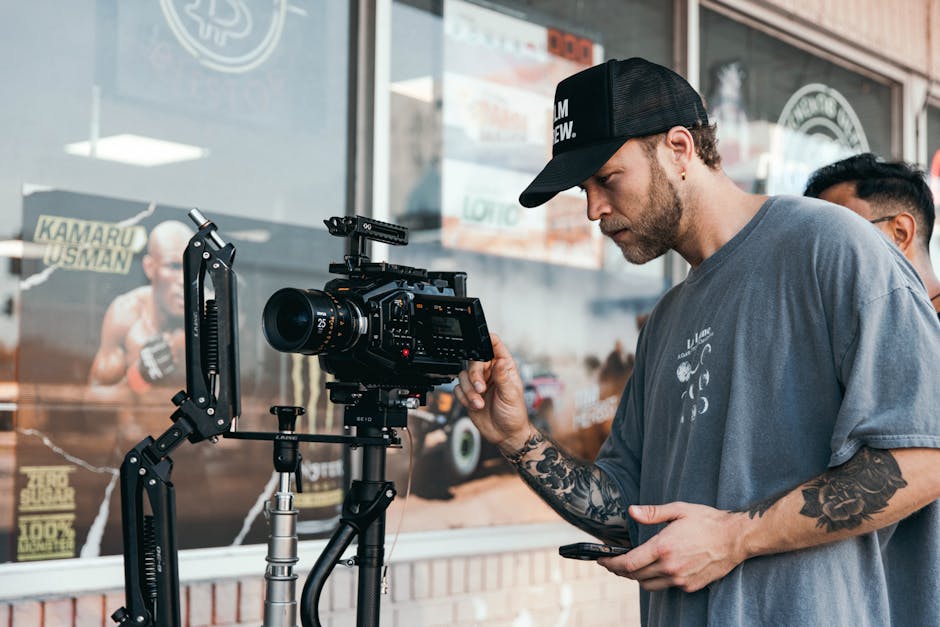So, you’ve got that feeling. That little voice in the back of your head that won’t shut up about starting something of your own. The idea of being your own boss, calling the shots, and building something from scratch, it’s a powerful thought that a lot of people have, especially with how things are going in 2025. It’s not just about quitting your day job; it’s about creating something that is uniquely yours. But where do you even begin? It feels like a huge mountain to climb. The truth is it’s just a series of steps. Some are big, some are small, but they’re all doable. Let’s just walk through it without all the fancy business school talk.
First Things First: That Big Idea and Who Cares About It
Every business starts with an idea. Yours might be a genius invention or maybe just a better way to sell coffee.
The quality of the idea is, well, a pretty big deal. But a great idea that no one wants is just a hobby.
So before you go printing business cards you need to figure out if anyone actually wants to buy your thing.
This is what people call market research, but really it’s just smart snooping. Who would buy your product?
Look at who is already selling something similar. What are they doing right? What are they doing wrong.
You can learn a lot from their customer reviews. People are very honest when they are complaining online.
Talk to actual potential customers. Don’t just ask your mom and best friend, they’ll always say it’s great.
Find strangers who fit your ideal customer profile and ask them what they think. It might be scary but it’s good information.
The Not-So-Fun Paperwork Stuff (But You Gotta Do It)
Alright, you’ve confirmed your idea isn’t totally crazy. Now for the part that makes people’s eyes glaze over.
It is the planning and legal setup that is so important. You can’t just wing this part, unfortunately.
It’s tempting to skip this and just start selling but that can lead to big headaches later on.
Making It a Real Plan
You need a business plan. Stop groaning. This plan, it doesn’t need to be a 100-page book that nobody reads.
Think of it less like a school assignment and more like a map you draw for yourself before a long road trip.
It should have some basic stuff in it. What you’re selling. Who you’re selling to. How you’ll make money.
And how you’ll tell people about your business. It’s really for you, to keep you on track.
It will also be something you need if you try to get money from a bank or an investor. They will want to see you’ve thought things through.
Making it Official: Business Structure
You have to decide what kind of company you are, legally speaking. This has tax and liability implications.
Sole Proprietorship: This is the easiest one. It’s just you. The business is you, you are the business. Simple, but your personal assets aren’t protected.
LLC (Limited Liability Company): A very popular choice for many, it protects your personal stuff if the business gets into trouble. The setup is a bit more work.
Corporation: This is typically for bigger companies. It’s more complex, has more rules, and is generally not the first step for a small operation.
You should probably talk to a legal person or an accountant. It’s worth a little money now to avoid a big problem later.
Naming and Registering
You need a name that’s catchy easy to remember and not already taken. Check online to see if the name and website domain are available.
Once you pick a name you generally have to register it with your state or local government. The process varies depending on where you live.
This is also when you’ll get any necessary tax ID numbers and permits or licenses to operate legally.
Show Me the Money: Figuring Out Finances
A business can’t run on passion alone. You’re going to need some cash to get started and to keep it going.
The money part is often considered to be the most stressful part of the entire process.
First, you need to figure out your startup costs. How much do you really need to open the doors?
Be honest with yourself here. Make a list of everything from website hosting to inventory to rent.
Then you need to figure out where that money is coming from. Normally, people start with their own savings.
This is called bootstrapping. It’s hard but you keep full control of your company.
Other options could be a small business loan from a bank. Getting a loan can be a whole process, so look into that early.
And of course there’s borrowing from friends and family. This can be tricky so make sure it’s a formal loan with a contract.
Whatever you do, open a separate business bank account. The reason you need a separate account is because it makes taxes way easier and it looks more professional. Don’t mix your personal groceries with your business inventory.
Getting the Word Out: Your First Marketing Moves
You could have the best product in the world, but if nobody knows about it, you won’t sell anything.
People need to know you exist. That’s marketing. Simple as that. It doesn’t have to be complicated or expensive at the start.
Your first step is to really, really understand your customer again. Where do they spend their time online?
What social media platforms do they use? What blogs do they read? What are their problems.
Building Your Online Home Base
In 2025, you absolutely need an online presence. It doesn’t have to be a complicated masterpiece.
Start with a simple website. It should clearly say what you do, who you are, and how people can buy from you or contact you.
Pick one or two social media platforms where your customers are and focus on those. Don’t try to be everywhere at once.
You’ll just spread yourself too thin and do a bad job on all of them. Consistency is more important than volume.
Your goal is to build a community, not just collect followers. Talk to people. Answer their questions. Be a human. Connecting with people where they hang out online, your marketing will start to work.
—
Frequently Asked Questions (FAQ)
1. How much money do I really need to start a small business?
This is the ultimate “it depends” question. A freelance writing business might only need a few hundred dollars for a website and some software. A coffee shop could need tens of thousands. The key is to calculate your specific startup costs before you do anything else.
2. Do I seriously need a business plan?
Yes, but it doesn’t have to be a novel. A simple 1-5 page plan that outlines your goals, your customer, and your money strategy is a great tool to keep you focused. If you want a loan, you’ll definitely need a more detailed one.
3. What is the easiest business to start?
Generally, service-based businesses are easiest because they don’t require inventory. Think about things like consulting, freelance work, tutoring, or house cleaning. The startup costs are much lower.
4. How long does it actually take to start a business?
The paperwork part can take a few days to a few weeks, depending on your location and business type. But going from idea to actually making your first sale? That can take months, or even a year. It’s a marathon, not a sprint.
5. Can I start a business while still working my full-time job?
Absolutely. Many people do this to reduce the financial risk. It means a lot of late nights and working on weekends, but it lets you test your idea and build income before taking the big leap.
—
Key Takeaways
Your idea needs a reality check. Make sure real people, not just your friends, would actually buy it.
Write a simple plan for yourself. It’s your roadmap so you don’t get lost.
The legal and money stuff is boring, but ignoring it will cause massive problems. Get it done right.
Open a separate bank account for the business from day one. Seriously.
Start marketing simply. Find where your customers are online and talk to them like a normal person.
Starting a business is a wild ride. It’s confusing and a bit messy, and there will be days you wonder what you were thinking. But taking that first step, and then the next one, is how every single company you’ve ever heard of got its start. You just have to begin.



